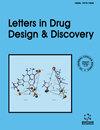P-glycoproteins in the Pathology and Treatment of Alzheimer's Disease
IF 1.6
4区 医学
Q4 CHEMISTRY, MEDICINAL
引用次数: 0
Abstract
: Alzheimer's disease (AD), a central cause of dementia, is characterized by the accumulation of amyloid β- peptide (Aβ) peptides in the brain. P-glycoprotein (P-gp), a highly expressed protein in the BBB, plays a fundamental role in transporting Aβ from the brain to the blood and protecting the blood-brain barrier (BBB). The dysfunction or decreased abundance of this transporting protein is associated with the accumulation of Aβ, leading to dementia and cognitive deficits. In this review article, we consolidate the existing literature on the impact of P-gp in the pathophysiology and therapy of AD. Current evidence claims that p-gp is involved in AD pathology and that enhancing the activity of this transporter may be a promising therapeutic approach to hinder AD progression. There is also a growing interest in P-gp as a potential therapeutic target for AD. Hence, ongoing clinical trials and research should investigate P-gp inhibitor efficacy as a therapeutic approach for improving AD drug delivery to the brain and treatment outcomes.阿尔茨海默病病理和治疗中的 P 糖蛋白
:阿尔茨海默病(AD)是痴呆症的主要病因,其特征是淀粉样β肽(Aβ)在大脑中的积累。P-糖蛋白(P-gp)是一种在血脑屏障(BBB)中高表达的蛋白质,在将 Aβ 从大脑转运到血液以及保护血脑屏障(BBB)方面发挥着重要作用。这种转运蛋白的功能障碍或丰度降低与 Aβ 的积累有关,从而导致痴呆和认知障碍。在这篇综述文章中,我们整合了有关 P-gp 在 AD 病理生理学和治疗中的影响的现有文献。目前的证据表明,P-gp 参与了 AD 的病理过程,而提高这种转运体的活性可能是一种很有前景的治疗方法,可以阻止 AD 的发展。此外,人们对将 P-gp 作为 AD 潜在治疗靶点的兴趣也与日俱增。因此,正在进行的临床试验和研究应调查 P-gp 抑制剂作为一种治疗方法的疗效,以改善向大脑输送 AD 药物的情况和治疗效果。
本文章由计算机程序翻译,如有差异,请以英文原文为准。
求助全文
约1分钟内获得全文
求助全文
来源期刊
CiteScore
1.80
自引率
10.00%
发文量
245
审稿时长
3 months
期刊介绍:
Aims & Scope
Letters in Drug Design & Discovery publishes letters, mini-reviews, highlights and guest edited thematic issues in all areas of rational drug design and discovery including medicinal chemistry, in-silico drug design, combinatorial chemistry, high-throughput screening, drug targets, and structure-activity relationships. The emphasis is on publishing quality papers very rapidly by taking full advantage of latest Internet technology for both submission and review of manuscripts. The online journal is an essential reading to all pharmaceutical scientists involved in research in drug design and discovery.

 求助内容:
求助内容: 应助结果提醒方式:
应助结果提醒方式:


